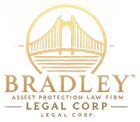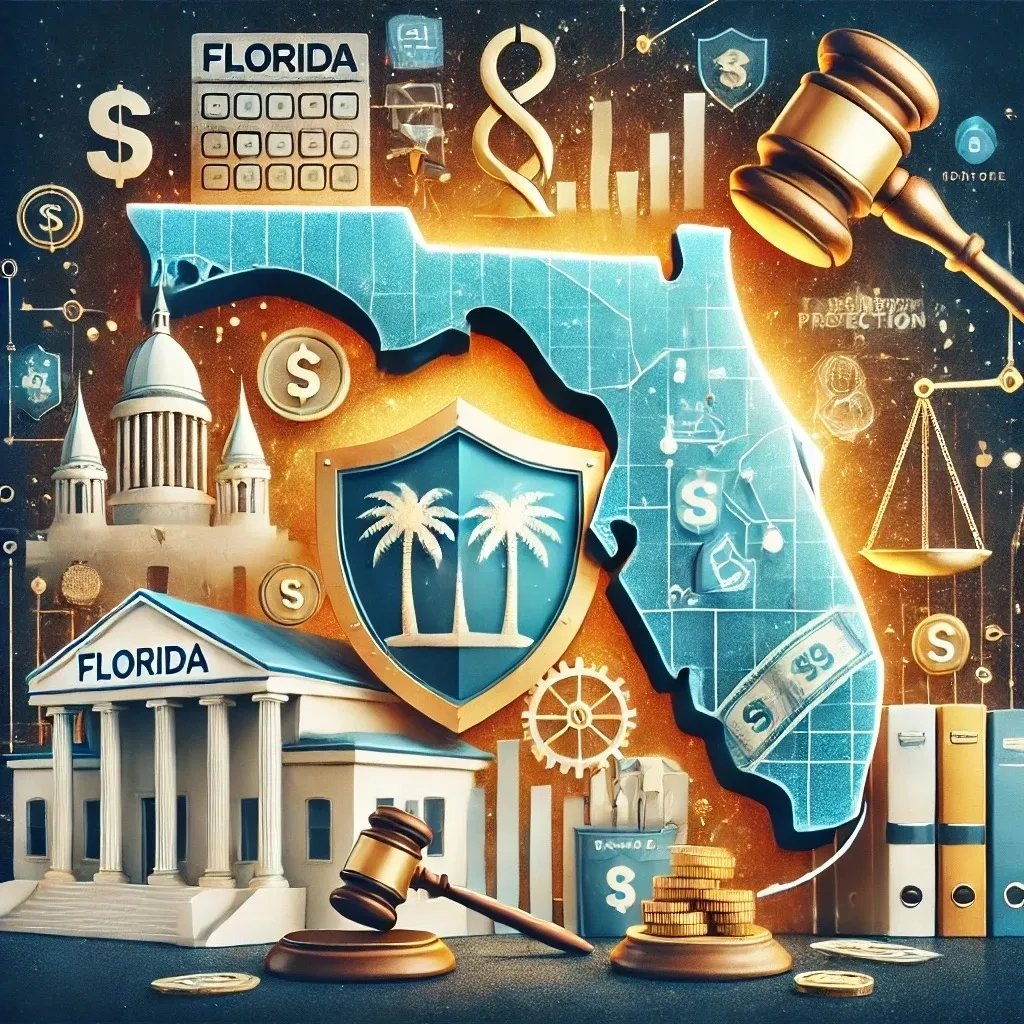Florida has a great homestead exemption, but what about FL asset protection trusts strength? Imagine Sarah, a high-net-worth individual living in sunny Florida. After years of hard work, she has accumulated significant assets, including her dream home, a thriving business, and a robust investment portfolio which includes risky assets like rental properties. Like many people in her situation, Sarah is eager to protect her wealth from potential creditors and legal threats. Sarah researches ‘asset protection strategies in Florida’ and finds out that Florida is thought of as an asset protection friendly state. She considers creating an irrevocable asset protection trust, believing it will offer the security she needs. However, as she explores her options, Sarah is surprised to discover that as of January 2024, only 21 states have self-settled spend thrift legislation, and Florida is not one of them. What his means is that relying solely on a FL asset protection trust can be a risky proposition, especially in a state like Florida, which is often touted for its asset protection laws.
The Challenge of Domestic Trusts: A Florida Case Study
As Sarah begins her journey researching domestic asset protection trusts, she discovers that Florida law does provide some asset exemptions under Fla. Stat. ch. 222, aimed at shielding various possessions from creditor claims. However, as she digs deeper, she learns that Florida courts generally do not recognize asset protection trusts when the settlor is also the primary beneficiary. Meaning, Florida law prohibits self-settled asset protection trusts. While you can use an asset protection trust in Florida to provide for others, state law and public policy prohibit you from using the trust for your own benefit.
This was notably highlighted in the case Menotte v. Brown (In re Brown), 303 F.3d 1261 (11th Cir. 2002), where the court stated that trusts established to place assets beyond the reach of creditors are not enforceable under Florida law. This sentiment was echoed in Barbee v. Goldstein (In re Reliance Fin. & Inv. Group, Inc.), No. 05-80625, 2006 U.S. Dist. LEXIS 82945 (S.D. Fla. Nov. 14, 2006), which reinforced the limitations of spendthrift trusts in providing effective asset protection.
As Sarah navigates her options, she comes to the painful realization that a purely domestic asset protection trust may not provide the comprehensive safety net she initially envisioned. If she were to face a lawsuit or legal challenge, even in Florida, though her primary residence is protected under the Florida homestead exemption, the rest of her assets could still be at risk.
Understanding Choice of Law Conflicts
Sarah’s concerns intensify as she contemplates the potential for choice of law conflicts. In instances where the law of another jurisdiction could apply, Florida courts typically adhere to their own laws. The court’s ruling in In re Rensin (U.S. Bankruptcy Court, S.D. Florida, 2019) serves as a poignant example. In this case, the court refused to apply Belizean law regarding an offshore asset protection trust, ruling that a trust’s choice of law provision must align with Florida public policy.
This reinforces the notion that if Sarah heads down the path of creating a trust under a more lenient jurisdiction, Florida courts may not recognize it, exposing her hard-earned assets to significant legal risk. The takeaway is clear: purely domestic trusts, even in a jurisdiction renowned for its asset protection laws, may not offer the level of security one might expect.
The Case for the Bridge Trust®
With renewed clarity, Sarah begins to explore other options like The Bridge Trust®, a hybrid asset protection trust tailored to meet these very challenges. Though the Bridge Trust is a fully registered Cook Islands Trust, this innovative structure functions as a domestic grantor trust during ordinary circumstances while allowing for a seamless transition back to its fully offshore status when faced with duress such as a legal threat. This dual function not only ensures compliance with IRS regulations (under IRC § 671-677) but also provides robust defenses against creditor claims.
Here’s how the Bridge Trust® is very different and effectively navigates the complexities of asset protection:
1. Proactive Planning: Unlike conventional domestic trusts, the Bridge Trust® is crafted with foresight, empowering individuals like Sarah to take measured protective actions before facing actual legal threats. This proactive approach helps avoid potential accusations of “creating the peril,” a common concern in asset protection discussions. For a deeper understanding of creating the peril, click this link: https://btblegal.com/blog-articles/f/creating-the-peril-is-a-misunderstood-concept-in-asset-protection
2. Involvement of Trust Protectors: This is a very critical aspect of the Bridge Trust®. The role of the Trust Protector, an independent entity that ensures the decision to transition the trust offshore is not made automatically or unilaterally by the settlor. This independent human oversight strengthens the legitimacy of the trust while reinforcing compliance with applicable laws.
3. Enhanced Defense Against Creditors: The ability to shift to an offshore structure under the robust legal framework of Cook Islands law offers additional protection against creditors while remaining compliant with IRS regulations, distinguishing the Bridge Trust® from standard domestic trusts that may fall short.
The Final Takeaway
Surprised with the inherent limitations of purely domestic trusts like those offered in Florida, Sarah learns a crucial lesson: even in states with robust asset protection laws, individuals should not solely depend on domestic structures for comprehensive security. The properly drafted Bridge Trust® serves as a vital asset protection tool that can safeguard wealth from potential legal threats effectively.
In conclusion, individuals seeking effective asset protection must carefully assess their strategies, even in asset protection “friendly” states. The combination of established case law that illustrates the limitations of domestic trusts and the potential complications arising from choice of law conflicts makes The Bridge Trust® a compelling solution for wealth protection. Working with legal experts to ensure the trust is appropriately designed can make all the difference in achieving peace of mind for individuals like Sarah.
For a legal consultation with an asset protection attorney, call (888) 773-9399.
By: Brian T. Bradley, Esq.




